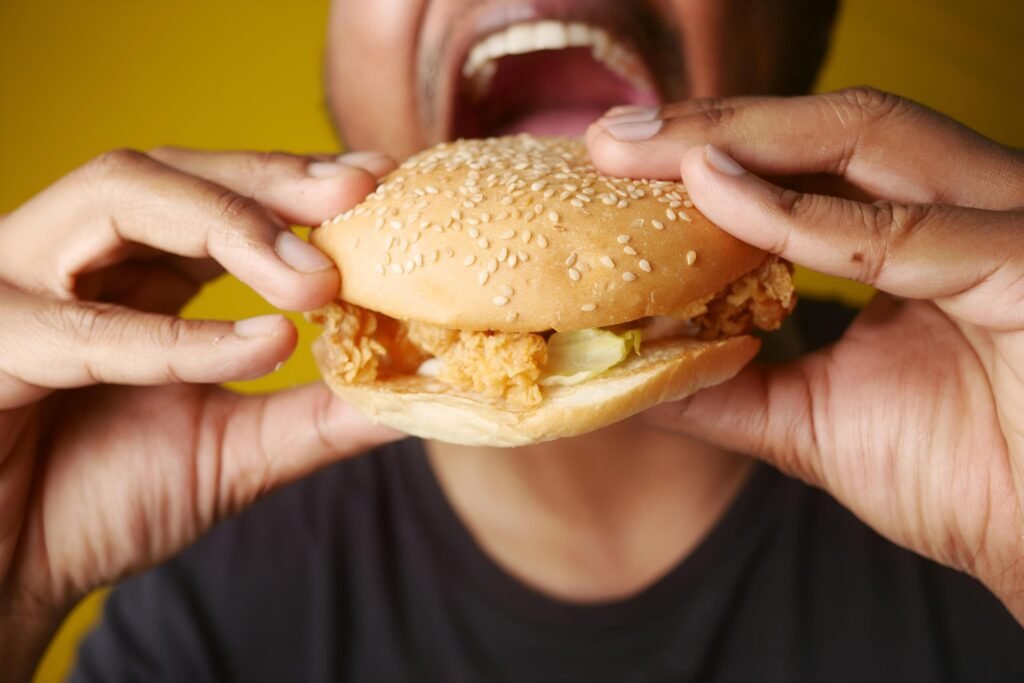Stress Eating: Good or Bad?
Published by Dr. S. PON SHYLAJA, Ph.D. | PSYCHOLOGIST

You know those days when everything feels like a mess, and before you know it, you’re halfway through a bag of chips or finishing off a tub of ice cream? Yeah, we’ve all been there. Stress eating – it’s one of those things we don’t really talk about unless it’s in a joking way, like, “Ugh, I was so stressed I ate an entire pizza by myself”. But let’s be real for a second – why do we do it? And is it actually bad?
As a psychologist, I’ve seen so many people beat themselves up over stress eating. They come in feeling guilty, like they’ve committed some kind of crime. But the truth is, stress eating isn’t just about food. It’s about comfort, about seeking something familiar when everything else feels chaotic. Our brains are wired to look for quick fixes when we’re overwhelmed, and food especially the carb-loaded, sugar-filled kind – releases feel-good chemicals like dopamine and serotonin that help us, at least temporarily, feel better.
I had a client once who told me, “I don’t even realize I’m eating until the plate is empty”. And I completely understood where she was coming from. When stress takes over, we go into autopilot. It’s not about hunger, it’s about distraction, about numbing the anxiety, even if just for a moment. But here’s where it gets tricky – if stress eating becomes the only way we cope, that’s when it can turn into a problem.
There’s also a biological factor at play. When we’re stressed, our bodies release cortisol, a hormone that increases appetite and cravings for high-calorie foods. This isn’t just a lack of willpower – it’s a physiological response. And for some, the habit starts early. Many of us were comforted with food as kids (“Here, have some chocolate, you’ll feel better”), which can condition us to associate eating with emotional relief.
One of the things I always remind my clients (and myself, honestly) is that eating under stress isn’t inherently bad. It’s a natural response. The problem arises when it becomes a pattern – when every tough day leads to bingeing, or when we start using food as a way to suppress emotions instead of dealing with them. The key isn’t to completely eliminate stress eating, but to become aware of it. Ask yourself, “Am I actually hungry, or am I just stressed?” And if the answer is stress, maybe try something else first – taking a walk, journaling, or even just taking a few deep breaths.
Of course, I won’t say, “Just eat a handful of almonds instead of a chocolate bar,” because let’s be honest, that’s not always satisfying. But balance is everything. If you find yourself stress eating often, try to figure out what’s triggering it. Are you overwhelmed with work? Feeling lonely? Burnt out? Once you identify the real issue, it becomes easier to find other ways to manage stress that don’t always involve food. Engaging in activities like mindfulness, talking to a friend, or even practicing deep breathing can help shift the focus away from food.
At the end of the day, food is meant to be enjoyed. It’s okay to turn to comfort foods now and then. Just remember – if stress eating is your go-to response, it might be worth exploring other ways to process emotions. Because you deserve to feel good, not just for a moment, but in a way that truly lasts.

